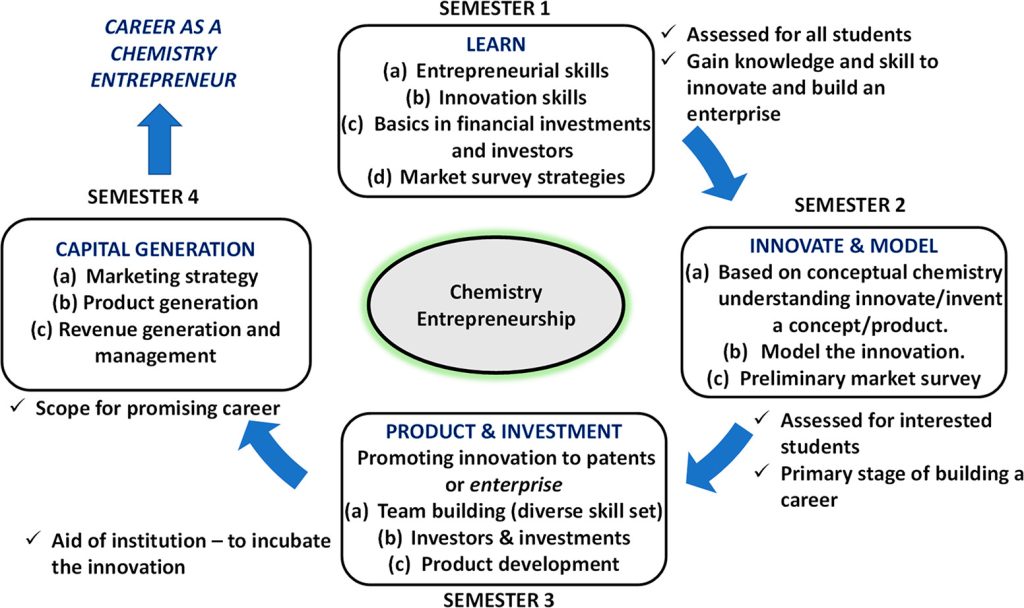
Chemistry entrepreneurship refers to the process of selling innovations in Chemistry to a market or buyer in order to generate revenue in the real world. The potential for Chemistry entrepreneurship is vast, given the widespread involvement of Chemistry in, energy production and storage, water safety, climate change, and more, thus creating opportunities for Chemistry entrepreneurship.
However, a significant obstacle to chemistry entrepreneurship lies in the existing gap between academia and entrepreneurship. While academic research may yield marketable products or results, commercialization requires bridging this gap. Methods like patenting, licensing, and creating start-ups offer avenues for economic gain from academic research and innovation in Chemistry.
Successful examples of chemistry entrepreneurship include ventures like ChromaDex and INI Power Systems Inc., which have leveraged natural product Chemistry and alternative energy research, respectively, to meet societal demands for medicines, cleaning products, alternate energy sources, and novel materials.
Despite the potential for financial gain, not all scientists and researchers are motivated to commercialize their ground-breaking ideas. Institutions tend to focus on enhancing student employability rather than preparing them for entrepreneurship or identifying potential employers in this field. Entrepreneurship demands conceptual clarity, practical knowledge, and the ability to identify commercially viable ideas, along with important factors like attitude and behavior.
To bridge the ideation-action gap between innovation and entrepreneurship, the study proposes a pedagogy to integrate Chemistry into the curriculum. By understanding students’ perspectives on Chemistry entrepreneurship through surveys, the aim is to make Chemistry education more relevant to the real world and equip students with the necessary skills and knowledge to become successful scientists and entrepreneurs. Incubation cells in academic institutions play a role in nurturing student scientists to develop into entrepreneurs.

Conclusion
Chemistry entrepreneurship involves monetizing classroom innovations and introducing them to the real-world market. This concept offers students the opportunity to generate income from their academic pursuits. Encouraging collaboration between chemistry students and those from other majors can lead to contributions to the country’s economy. The development of Chemistry entrepreneurship is relevant to real-world needs. While some Chemistry programs include the conceptual unit of Chemistry entrepreneurship. We propose elevating it to a hands-on, experimental, and collaborative course with additional credit(s) based on student interest, creating more meaningful experiences for Chemistry entrepreneurship.
Despite obstacles, Chemistry entrepreneurship can bridge the gap between academia and the real world. The survey discussed in this study indicates a growing interest among students in exploring Chemistry entrepreneurship. Considering the inhibitions students face in modeling and building their innovations, we propose integrating Chemistry entrepreneurship into the postgraduate Chemistry curriculum. This approach aims to promote innovative ideas and empower students to become self-sustaining Chemistry entrepreneurs, thus closing the ideation-action gap.
For other articles https://scitechupdate.com/index.php/android-14-satellite-sms-for-everyone/
Citation: https://pubs.acs.org/doi/epdf/10.1021/acs.jchemed.1c00133
If anyone needs this article, send me an email


Pingback: NASA research: Climate Hazards at Two Degrees Warming